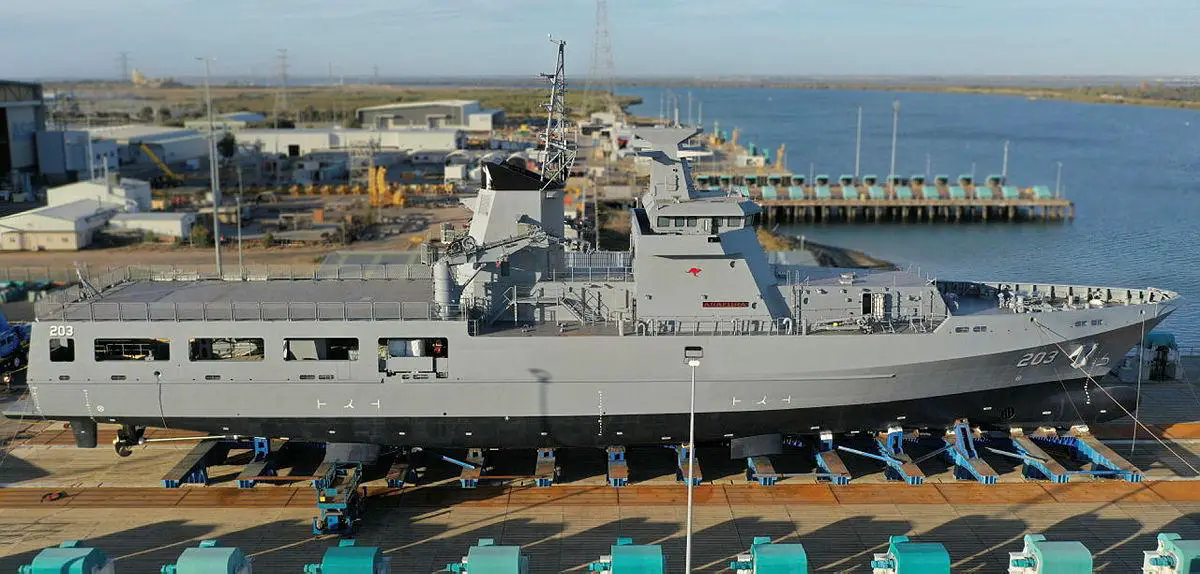Australian Minister for Defence Industry, the Hon Pat Conroy MP, Luerssen Australia’s Chairman, Mr Tim Wagner and senior Defence and Luerssen Australia officials met today at a Projects of Concern Summit in Canberra to discuss the SEA 1180 Phase 1 – Offshore Patrol Vessels (OPV) project. The OPV project was listed as a Project of Concern in October this year, with the project experiencing delays in delivery of both the vessels and the associated support system. Schedule delays with the project first emerged in 2021. Defence and Luerssen Australia recommitted to working collaboratively to resolve the significant challenges experienced with the delivery schedule for the OPV capability.
Minister Pat Conroy said: “I thank company representatives and Defence officials for their work today in discussing the Arafura-class offshore patrol vessel project. Top-level focus is essential to ensure we are doing all we can to remediate areas of deficiency. Defence and our industry partner Luerssen Australia have committed to jointly address the significant schedule delays facing this project. Defence looks forward to working collaboratively with Luerssen Australia to get the project back on track. Today’s Summit has provided the leadership, commitment and oversight that is needed to work towards remediating this project.”
The Arafura class is a class of offshore patrol vessels being built for the Royal Australian Navy (RAN). Initially proposed in the 2009 Defence White Paper and marked as procurement project SEA 1180, it was originally planned that 20 Offshore Combatant Vessels (OCV) would replace 26 vessels across four separate ship classes: the Armidale-class patrol boats, the Huon-class minehunters, the Leeuwin-class survey vessels, and the Paluma-class survey motor launches. Although having a common design (which could be up to 2,000 tonnes in displacement), the ships would use a modular mission payload system to fulfill specific roles; primarily border patrol, mine warfare, and hydrographic survey. The Project of Concern process is a proven way to remediate challenging projects through ministerial oversight and bringing Defence and industry together for constructive discussions.
The Arafura-class is based on the Lürssen-designed Darussalam-class, operated by the Royal Brunei Navy. Each vessel has a gross displacement of 1,640 tonnes, and measures 80 metres long, with a beam of 13 metres and a draft of 4 metres. Propulsion power is from two MTU 16V diesel engines rated at 4440kW each, which drive variable pitch propellers and give a top speed of 22 knots, and shipboard electrical power is generated by MAN diesel engines. The ship’s range is about 4,000 nautical miles (7,400 km), with an endurance of 21 days. The standard crew complement is 40 sailors, though up to 20 more can be berthed if required. The ships will be deployed with empty space available to install container-mounted systems such as aircraft support and sensors; if fully utilized, the gross displacement could increase to 1,800 tonnes.











